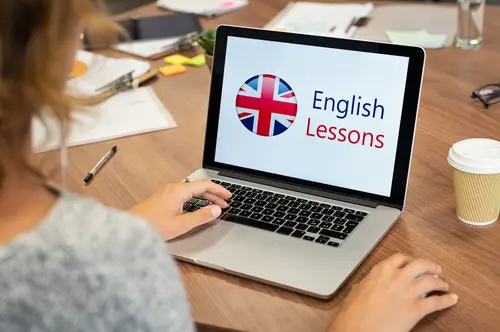Learning a new language is a gradual process, and it is not guaranteed to have fluency while speaking, even after developing fluency in writing. It takes a considerable amount of practice and utilization to use a language correctly.
Despite being a universal language, English is spoken in many forms and levels. Some people use it for informal conversations; others use it just for academic purposes. And to some, it comes naturally. Now let us go through the significant steps to becoming fluent in English.
Fluent in English Language Faster
Quick Navigation
Following are some key tactics to help you think, dream, and speak:
1. Read
Think before you speak. Read before you think. Reading is an excellent way to increase your vocabulary and learn the usage of expressions. Not everyone likes to spend days finishing a book, and tight schedules barely leave any time to spend on pleasure reading, but it is not hard to develop a habit of reading by starting with things you fancy.
For example, if you like sports, you can read a whole article about it in English newspapers instead of reading short sports updates on your mobile phone or their digital alternatives.
2. Listen to podcasts and music in English
It is a fact that babies learn to speak by listening. It is impossible to surround yourself with native English speakers, but listening to how they converse is possible. Listening to a podcast in a language you want to learn exposes you to more native usage of that language.
Moreover, a podcast exists for almost everything in the world these days, so you can find a subject of your liking and listen to experts talk about it. If podcasts are too time-consuming for you, you can opt for music. This way, you can learn the usage and pronunciation of words and entertain yourself simultaneously.
3. Write a diary
Being able to express your thoughts in a language is a symbol of successful usage of it. Even if you are a beginner, use the words you have learned to write about your day. This method is more useful if you have decided to dedicate considerable time to attain fluency in English.
4. Speak as much as you can
It is normal to make a few mistakes while speaking when you’re learning a language. But why should that bar you from using it? If you feel uncomfortable speaking in front of people and cannot find an audience, a great way to practice is to talk in front of a mirror and record your sessions.
You can listen to the recordings afterward and find out your mistakes while speaking. It is easier to criticize yourself than have someone else judge you.
If you are professionally trained, you can play these recordings to your trainer to understand your areas of problem. The more you use it, the more naturally it will occur. Eventually, you will be able to form sentences in English immediately in your mind.
5. Use simple sentences
Trying to use complex sentences in a conversation seems unnecessary, pressuring, and sometimes even discouraging if you fail to speak the sentence correctly. To avoid all of that trouble, it is wise to use smaller sentences that are easily constructed in your mind.
Your message will come across more clearly to people than it will if you try to use a long, complex sentence and get confused.
6. Don’t worry about your accent
Geographically, only a particular population of people in the world is of native speakers. To the rest of the world, English is just a second language. Therefore, you should not be embarrassed or ashamed to speak a second language with an accent.
Trying to imitate native speakers will only distract you from the message you are trying to convey, and you might get lost in the translation of the sentence. Speaking the language in your native accent will make you more familiar with words and the situations in which they are used.
7. Practice tongue twisters
A tongue-twister is a spoken word game. It improves your pronunciation and your pace if speaking a language. For example, ‘She Sells Sea Shells on a Sea Shore.’ Read this sentence carefully. Now try repeating it five times without stuttering.
It is not easy even for native speakers to complete tongue twisters without breaking them, so it might take a while for you to master them. However, these games train you well for pronouncing harsh sentences.
During your IELTS preparation, you need to indulge in all aspects of the language. School education trains us to study English; however, having fluency while speaking requires some training. An excellent way to master any language is to surround yourself with it and practice these seven tactics regularly.

Azizul Hakim is the founder & CEO of englishfinders.com. He is a passionate writer, English instructor, and content creator. He has completed his graduation and post-graduation in English language and literature.






nice article
Thank u!